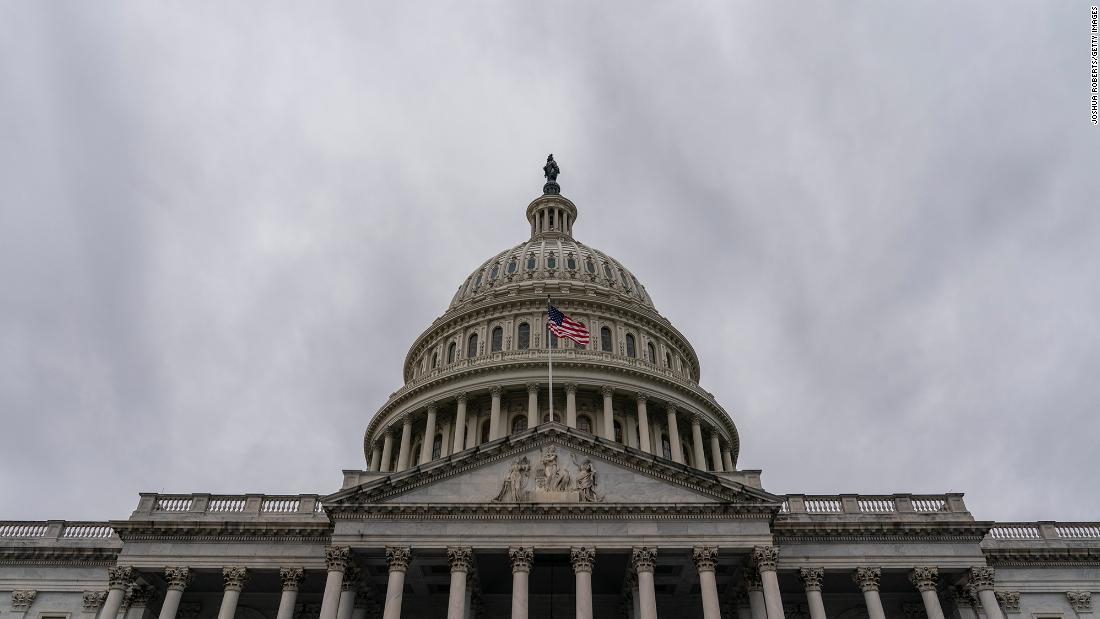
President Joe Biden and congressional Democrats have long made it clear that they intend to pay for their wish-list by raising taxes on the rich and big businesses. But lawmakers have not previously provided details on what that would entail.
The draft proposal, which could still change before it is expected to be officially released Monday, calls for increasing the top marginal rate on individuals to 39.6%, up from the 37% rate set by the Republicans’ 2017 tax cut law, according to a plan circulating Sunday and obtained by CNN.
The rate would apply to individuals with taxable income over $400,000 a year and married couples filing jointly earning over $450,000 annually.
The top capital gains rate would increase to 25%, from 20%.
In addition, lawmakers would slap a 3% surtax on individuals with adjusted gross incomes in excess of $5 million.
And it would broaden the net investment income tax to cover net income derived in the ordinary course of a trade or business for single taxpayers with greater than $400,000 in taxable income or joint filers with earnings greater than $500,000.
Currently, as part of the Affordable Care Act, some higher-income Americans are subject to an additional 3.8% Medicare tax on certain investment income and an 0.9% Medicare surcharge on wages.
Altogether, the additional levies on high-income individuals would raise approximately $1 trillion. Biden has promised that those earning below $400,000 a year would not see a tax hike.
The proposal also calls for increasing the top corporate tax rate to 26.5%, up from the current 21% set by the Republicans’ 2017 tax cut law. It would only apply to businesses with income in excess of $5 million.
Biden had called for hiking the corporate rate to 28% to pay for his economic recovery agenda. Prior to the 2017 law, the top rate was 35%.
And the House proposal would raise the minimum tax on foreign earnings of US companies to 16.5%, from the current 10.5%. Biden had suggested pushing it up to 21%.
The plan would also increase a variety of other taxes on the wealthy and businesses, among other measures, including modifying rules involving cryptocurrency transactions.
It would also give the Internal Revenue Service an additional $80 billion over the next 10 years for tax enforcement of high-income Americans, which the Congressional Budget Office estimated could raise $200 billion. And the proposal projects it would raise an additional $700 billion by allowing Medicare to negotiate drug prices and eliminating a controversial drug rebate rule enacted by the Trump administration.
All told, the measures would raise an estimated $2.9 trillion, though the plan cautions that “this number remains very preliminary.” When combined with an estimated $600 billion in dynamic revenue growth estimated by the White House, the proposal would fully offset the cost of the Democrats’ budget package, according to the drafters.
Hitting hurdles over size
Aware that they will get no Republican support for their massive expansion of the nation’s safety net system, Democrats are planning to pass the package through the reconciliation process, which requires no GOP votes in the Senate.
Thirteen House committees are crafting the legislation that will make up the massive package in coming days, with a target of submitting detailed bills by Wednesday. Democratic leaders hope to hold a floor vote later this month.
But battles have already broken out within the Democratic party, with West Virginia Sen. Joe Manchin telling CNN’s Dana Bash on Sunday that he will not support the $3.5 trillion price tag. Sen. Kyrsten Sinema of Arizona has also indicated she does not support the price tag, and Sen. Mark Warner of Virginia said in a statement Sunday evening that he believes the spending bill “falls short” because there is not enough funding for housing assistance.
Manchin’s comments prompted Sen. Bernie Sanders, who chairs the Budget Committee that laid out recommendations for the sweeping plan, to tell Bash in a separate interview that it is “not acceptable” that Manchin won’t support the bill.
What House Democrats are proposing
The 10-year spending plan marks the latest step in the Democrats’ drive to expand education, health care and child care support, tackle the climate crisis and make further investments in infrastructure.
Party leaders are hoping to use the annual budget process to push through many of the measures envisioned in Biden’s jobs and families proposals that Republican opposition have blocked.
The draft legislation being written by various House committees calls for establishing a universal Pre-K program for 3- and 4-year-olds and a new child care benefit for working families. The proposal would make community college free for two years and increase the size of the maximum Pell Grant award for low-income students.
It would extend the enhanced child tax credit through 2025 and make permanent the beefed up subsidies for Affordable Care Act policies.
Lawmakers are also proposing adding dental, vision and hearing benefits to Medicare and creating a federal Medicaid expansion program to cover low-income adults in states that have refused to adopt the Affordable Care Act provision.
It also contains multiple provisions to combat climate change and to invest in infrastructure and jobs.
This story has been updated with additional information.



